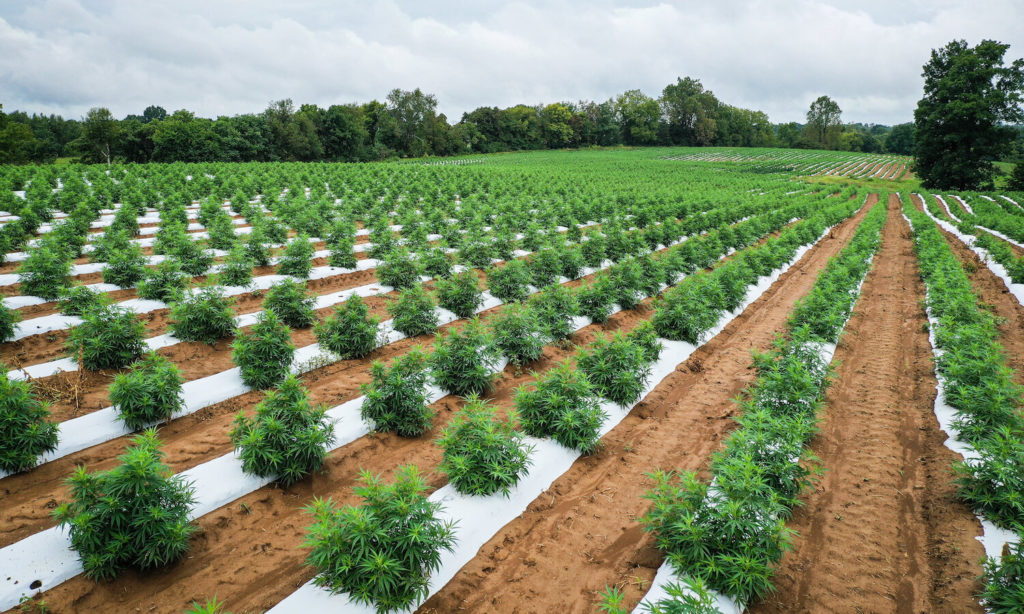Earlier this month, United States Representatives Kurt Schrader, a Democrat from Oregon, and Morgan Griffith, a Republican from Virginia, introduced HR 841 or the Hemp and Hemp-Derived CBD Consumer Protection and Market Stabilization Act to the House. HR 841 would, the bill says, “make hemp, cannabidiol derived from hemp, and any other ingredient derived from hemp lawful for use under the Federal Food, Drug, and Cosmetic Act as a dietary ingredient in a dietary supplement, and for other purposes.”
The bill, first introduced last year, was reintroduced on Feb. 4 and has been referred to the House Committee on Energy and Commerce. It creates a legal way for hemp extracts (most popularly, CBD) to be sold while making sure hemp extracts comply with the regulations that exist for dietary supplements. In effect, the bill legalizes CBD in dietary supplements and would be the first step towards a regulated CBD market many advocates, businesspeople, and farmers have been demanding for years.
“This bill prioritizes consumer safety, requiring manufacturers to comply with existing federal regulations for dietary supplements and ensuring that products are properly labelled and prepared,” a press release from Schrader’s office explained.
If HR 841 were to pass, it would significantly reduce the number of CBD brands on the market—many of which are questionable and some even downright dangerous due to the lack of required regulation—and would benefit companies producing high quality hemp who are able to pay for expensive toxicology testing (the definition of hemp as cannabis with 0.3% THC or less would continue).
The reason for the bill is what many in the hemp industry have considered a lack of action by the Food and Drug Administration (FDA), when it comes to regulating hemp and CBD properly. The 2018 Farm Bill legalized hemp and related products like CBD but did not change the Food, Drug, and Cosmetic Act, so that hemp products such as CBD could be considered dietary supplements.
In July 2020, the FDA released a report which revealed that less than half of the CBD products tested actually included the amount of CBD advertised on the packaging. The study tested 147 products for 11 different cannabinoids, including CBD and THC) levels. 102 of those tested products advertised contained a certain amount of CBD and the FDA found that 18% of the products had less than 80% of the CBD amount advertised; 45% of the products came within 20% of the amount of CBD advertised; and 37% of the products had more than 120% of the amount of CBD advertised. Nearly half of the 147 products had THC levels above the 0.3% limit.
At the end of 2020, the FDA published a warning about five companies selling illegal CBD products.
“The FDA’s first priority is to protect the health and safety of Americans. Many questions remain regarding the science, safety, effectiveness and quality of products containing CBD,” said FDA Principal Deputy Commissioner Amy Abernethy. “We remain focused on exploring potential pathways for CBD products to be lawfully marketed while also educating the public about these outstanding questions of CBD’s safety.”
Other information and warnings about CBD from the FDA can be found here. Additionally, the passing of the 2018 Farm Bill resulted in another burst of interest in producing and selling hemp and CBD from farmers, in part because it was assumed the FDA would soon be providing its own regulatory framework. That still has not happened. HR 841’s reintroduction could move the FDA to finally respond.
US Hemp Roundtable, a pro-hemp coalition of companies and organizations, framed HB 841 as not only about safety but as something like COVID-19 relief for those farming hemp and making CBD products.
“Last year was awfully tough for hemp farmers and CBD businesses,” US Hemp Roundtable wrote. “Severe economic hardship was the result of continued regulatory uncertainty concerning hemp extract products. Meanwhile, the CBD market remains an unregulated Wild West—consumers are having a difficult time identifying products they can trust.”
Photo of hemp field by Rick Lohre via Shutterstock.

